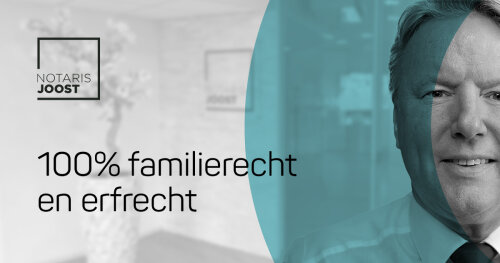Best Collaborative Law Lawyers in Netherlands
Share your needs with us, get contacted by law firms.
Free. Takes 2 min.
Free Guide to Hiring a Family Lawyer
Or refine your search by selecting a city:
List of the best lawyers in Netherlands
About Collaborative Law in Netherlands
Collaborative Law in Netherlands is a method of resolving disputes outside of court by working with a team of professionals, including lawyers, to reach a mutually beneficial agreement. This process emphasizes cooperation, transparency, and open communication to facilitate a peaceful resolution.
Why You May Need a Lawyer
You may need a lawyer in Collaborative Law proceedings in Netherlands if you are facing a family dispute, such as divorce, child custody, or inheritance issues. A lawyer can provide legal advice, represent your interests, and help you navigate the complexities of the Collaborative Law process.
Local Laws Overview
In Netherlands, Collaborative Law is governed by the Collaborative Law Act, which outlines the procedures and requirements for participating in Collaborative Law proceedings. It is important to be familiar with these laws to ensure a successful outcome in your case.
Frequently Asked Questions
1. What is Collaborative Law?
Collaborative Law is a legal process where parties work together to resolve a dispute without going to court.
2. How does Collaborative Law differ from traditional litigation?
Collaborative Law focuses on reaching a mutually beneficial agreement through open communication and cooperation, while litigation involves an adversarial court process.
3. Do both parties need to agree to participate in Collaborative Law?
Yes, both parties must voluntarily agree to participate in Collaborative Law proceedings.
4. What are the key benefits of Collaborative Law?
Some benefits of Collaborative Law include cost-effectiveness, confidentiality, and the ability to maintain control over the outcome of the dispute.
5. Can children be involved in Collaborative Law proceedings?
Yes, children's interests are often a key consideration in Collaborative Law cases involving family disputes.
6. What happens if an agreement cannot be reached through Collaborative Law?
If an agreement cannot be reached, the parties may choose to pursue other legal options, such as mediation or litigation.
7. How long does a Collaborative Law process typically take?
The length of the Collaborative Law process can vary depending on the complexity of the issues involved and the willingness of the parties to cooperate.
8. Is the outcome of a Collaborative Law agreement legally binding?
Yes, once an agreement is reached in Collaborative Law, it is typically formalized and becomes legally binding.
9. Can I change lawyers during a Collaborative Law process?
Yes, you have the right to change lawyers at any point during the Collaborative Law process if you feel it is necessary.
10. How can I find a qualified Collaborative Law lawyer in Netherlands?
You can search for qualified Collaborative Law lawyers through local bar associations, legal directories, or by asking for recommendations from trusted sources.
Additional Resources
For more information on Collaborative Law in Netherlands, you can visit the Netherlands Collaborative Law Association website or contact the Dutch Ministry of Justice for guidance on legal matters.
Next Steps
If you require legal assistance in Collaborative Law in Netherlands, it is recommended to consult with a qualified lawyer who specializes in this area of law. They can provide personalized advice and guidance to help you navigate the Collaborative Law process successfully.
Lawzana helps you find the best lawyers and law firms in Netherlands through a curated and pre-screened list of qualified legal professionals. Our platform offers rankings and detailed profiles of attorneys and law firms, allowing you to compare based on practice areas, including Collaborative Law, experience, and client feedback.
Each profile includes a description of the firm's areas of practice, client reviews, team members and partners, year of establishment, spoken languages, office locations, contact information, social media presence, and any published articles or resources. Most firms on our platform speak English and are experienced in both local and international legal matters.
Get a quote from top-rated law firms in Netherlands — quickly, securely, and without unnecessary hassle.
Disclaimer:
The information provided on this page is for general informational purposes only and does not constitute legal advice. While we strive to ensure the accuracy and relevance of the content, legal information may change over time, and interpretations of the law can vary. You should always consult with a qualified legal professional for advice specific to your situation.
We disclaim all liability for actions taken or not taken based on the content of this page. If you believe any information is incorrect or outdated, please contact us, and we will review and update it where appropriate.
Browse collaborative law law firms by city in Netherlands
Refine your search by selecting a city.
















